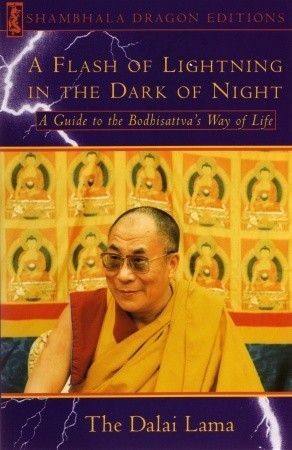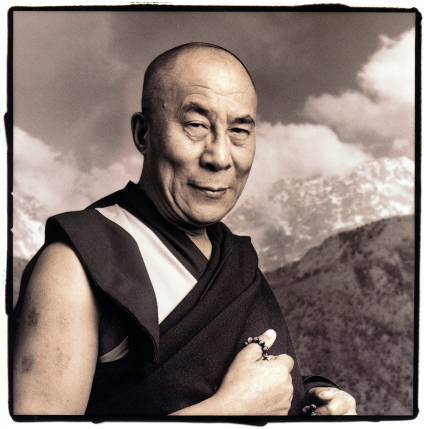
Compassion is the guiding principle of the bodhisattvas, those who vow to attain enlightenment in order to liberate all sentient beings from the suffering and confusion of imperfect existence. To this end, they must renounce all self-centered goals and consider only the well-being of others. The bodhisattvas' enemies are the ego, passion, and hatred; their weapons are generosity, patience, perseverance, and wisdom. In Tibetan Buddhism, the Dalai Lama is considered to be a living embodiment of this spiritual ideal. His Holiness the Fourteenth Dalai Lama presents here a detailed manual of practical philosophy, based on The Way of the Bodhisattva (Bodhicharyavatara), a well-known text of Mahayana Buddhism written by Shantideva. The Dalai Lama explains and amplifies the text, alluding throughout to the experience of daily life and showing how anyone can develop bodhichitta, the wish for perfect enlightenment for the sake of others. This book will surely become a standard manual for all those who wish to make the bodhisattva ideal a living experience.
Author

Jetsun Jamphel Ngawang Lobsang Yeshe Tenzin Gyatso (born Lhamo Döndrub), the 14th Dalai Lama, is a practicing member of the Gelug School of Tibetan Buddhism and is influential as a Nobel Peace Prize laureate, the world's most famous Buddhist monk, and the leader of the exiled Tibetan government in India. Tenzin Gyatso was the fifth of sixteen children born to a farming family. He was proclaimed the tulku (an Enlightened lama who has consciously decided to take rebirth) of the 13th Dalai Lama at the age of two. On 17 November 1950, at the age of 15, he was enthroned as Tibet's ruler. Thus he became Tibet's most important political ruler just one month after the People's Republic of China's invasion of Tibet on 7 October 1950. In 1954, he went to Beijing to attempt peace talks with Mao Zedong and other leaders of the PRC. These talks ultimately failed. After a failed uprising and the collapse of the Tibetan resistance movement in 1959, the Dalai Lama left for India, where he was active in establishing the Central Tibetan Administration (the Tibetan Government in Exile) and in seeking to preserve Tibetan culture and education among the thousands of refugees who accompanied him. Tenzin Gyatso is a charismatic figure and noted public speaker. This Dalai Lama is the first to travel to the West. There, he has helped to spread Buddhism and to promote the concepts of universal responsibility, secular ethics, and religious harmony. He was awarded the Nobel Peace Prize in 1989, honorary Canadian citizenship in 2006, and the United States Congressional Gold Medal on 17 October 2007.